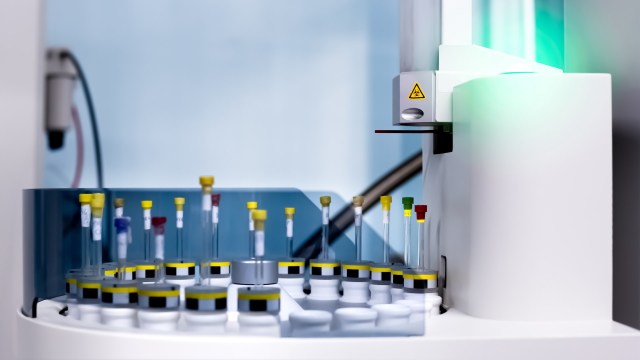Scientists believe accident with battery-like supercapacitors allows for greater energy storage: 'It could be a turning point'

Cambridge scientists have discovered a mess that could unlock a clean energy storage breakthrough.
The disorder is happening with the chemical structure of carbon electrodes inside supercapacitors. In a surprise to scientists, the result is far greater storage capacity than what's possible with neater versions, according to a lab summary.
It's an important development because supercapacitors can store energy like a battery, though their inner workings are arranged differently.
A big distinction is that supercapacitors can power up in seconds and last for millions of cycles. The problem is that they haven't been able to store much power. If a supercapacitor were to energize a bus, for example, it could fully charge while passengers get on and off the vehicle. But its energy supply would be depleted when it reaches the next stop, as Cambridge describes it.
By analyzing the structure of the porous electrodes with the help of computer modeling, the experts found that a more disorganized molecule holds more energy.
"We want to look at new ways of making these materials, to see how far messiness can take you in terms of improving energy storage," Alex Forse, who led the research, said in the lab report.
Watch now: Ford executive reveals how the brand will meet customers 'where they are' with EV technology
It's a characteristic that has so far been hard to measure. Supercapacitors power up and down when charged molecules move between two porous electrodes. To this point, most experts thought that the messiness was a detriment. But it turns out that they can store more ions in their nanopores when the molecular makeup isn't neatly defined.
"Using … spectroscopy, we found that energy storage capacity correlates with how disordered the materials are — the more disordered materials can store more energy," the study's first author, Xinyu Liu, said.
If experts can improve supercapacitor energy density even a little, it could be a huge gain when combined with the impressive charge time the tech offers.
That said, the Cambridge team notes that they consider the tech to be a complement, not a replacement, for traditional batteries.
"Their durability and extremely fast charging capabilities make them useful for a wide range of applications," Forse said in the summary.
Other supercapacitor inventions are taking interesting turns, as well. North Carolina State researchers are making a yarn-like version that is intended to be sewn into clothing to power wearable tech. Another invention would help to turn cement into a supercapacitor, potentially converting foundations into power supplies for structures.
Increased energy storage can help us leverage more intermittent renewable energy, lessening the air pollution produced by dirty fossil sources.
The result could even improve your brain's health, as air pollution has been linked to dementia risks.
The messy discovery at Cambridge could soon be a part of the solution.
"It could be a turning point for a field that's been stuck for a little while. … it's exciting to see a lot of our previous fundamental work now having a clear application," Forse said about the Cambridge research.
Join our free newsletter for weekly updates on the coolest innovations improving our lives and saving our planet.
Scientists believe accident with battery-like supercapacitors allows for greater energy storage: 'It could be a turning point' first appeared on The Cool Down.
Welcome to Billionaire Club Co LLC, your gateway to a brand-new social media experience! Sign up today and dive into over 10,000 fresh daily articles and videos curated just for your enjoyment. Enjoy the ad free experience, unlimited content interactions, and get that coveted blue check verification—all for just $1 a month!
Account Frozen
Your account is frozen. You can still view content but cannot interact with it.
Please go to your settings to update your account status.
Open Profile Settings